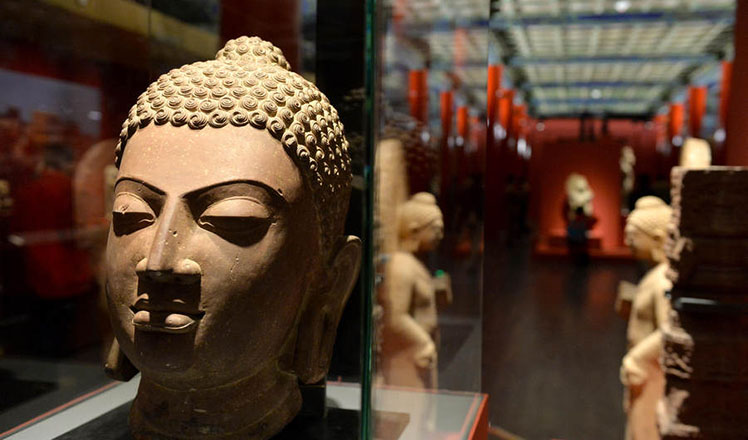Trio wins Nobel chemistry prize for 'world's smallest machines'
Updated: 2016-10-05 18:54
(Agencies)
|
||||||||
 |
|
The Royal Academy of Sciences members present 2016 Nobel Chemistry Prize during a news conference by the Royal Swedish Academy of Sciences in Stockholm, Sweden October 5, 2016. The winners of the 2016 Nobel Chemistry Prize (L-R) Jean-Pierre Sauvage, J Fraser Stoddart and Bernard L Feringa are displayed on a screen. [Photo/Agencies] |
STOCKHOLM - Jean-Pierre Sauvage, J. Fraser Stoddart and Bernard Feringa won the Nobel chemistry prize on Wednesday for work on molecular machines that may lead to developments like new materials, sensors and energy storage systems.
"This year's Nobel Prize in Chemistry is about the world's smallest machines," said Goran Hansson, a member of the Royal Swedish Academy of Sciences which conferred the award.
The French, Scottish and Dutch scientists had developed molecules with controllable movements that can perform tasks when energy is added, the Academy said in a statement awarding the 8 million Swedish crown ($931,000) prize.
"The molecular motor is at the same stage as the electric motor was in the 1830s, when scientists displayed various spinning cranks and wheels, unaware that they would lead to electric trains, washing machines, fans and food processors," it added.
Sauvage is professor emeritus at the University of Strasbourg and director of research emeritus at France's National Center for Scientific Research.
Stoddart, born in Edinburgh, is professor of chemistry at Northwestern University in the United States, while Feringa is professor in organic chemistry at the University of Groningen in the Netherlands.
"This is quite unexpected, although it has been in the cards for 25 years, I think. When it happens, it takes your breath away," Stoddart said in a phone interview, as he watched the ceremony in a live broadcast from his home outside Chicago.
Feringa, when asked his reaction to learning he had won, said: "What I said when I got this message is that I don't know what to say."
Chemistry is the third of this year's Nobel prizes after the medicine and physics laureates were announced on Monday and Tuesday.
The prize is named after dynamite inventor Alfred Nobel and has been awarded since 1901 for achievements in science, literature and peace in accordance with his will.
($1 = 8.5947 Swedish crowns)

 Top 10 Chinese cities with 'internet plus transportation’
Top 10 Chinese cities with 'internet plus transportation’
 New energy cars shine at Paris Motor Show
New energy cars shine at Paris Motor Show
 23 baby giant pandas make debut in Chengdu
23 baby giant pandas make debut in Chengdu
 Heritage list salutes Chinese architecture
Heritage list salutes Chinese architecture
 Happy hour for prince and princess in Canada
Happy hour for prince and princess in Canada
 Chinese and Indian sculptures on display at the Palace Museum in Beijing
Chinese and Indian sculptures on display at the Palace Museum in Beijing
 Rescue work at the typhoon-hit provinces
Rescue work at the typhoon-hit provinces
 Wonderland-like sunrise in East China
Wonderland-like sunrise in East China
Most Viewed
Editor's Picks

|

|

|

|

|

|
Today's Top News
Trump outlines anti-terror plan, proposing extreme vetting for immigrants
Phelps puts spotlight on cupping
US launches airstrikes against IS targets in Libya's Sirte
Ministry slams US-Korean THAAD deployment
Two police officers shot at protest in Dallas
Abe's blame game reveals his policies failing to get results
Ending wildlife trafficking must be policy priority in Asia
Effects of supply-side reform take time to be seen
US Weekly

|

|







